Mountain Vista
High School
Highlands Ranch, Colorado | EST. 2017
Farmer
Students in the Agriculture Business course, led by teacher David Larsen
No. of Farms
One
Model
High school agriculture program
Area Served
Highlands Ranch, Colorado
Main Crops
Herbs, lettuces
Farm Model
2017 Leafy Green Machine
Watch the video! We highlight Mountain Vista High School’s agriculture program in this video case study.
Mountain Vista High School (MVHS) is a pioneer of vertical farming at schools. Their Freight Farming program launched in 2017, with the movement spearheaded by teacher David Larsen. The campus’ Leafy Green Machine farm is utilized by teachers across disciplines — from biology and chemistry to business — to get students out from behind their desks and provide valuable hands-on learning experiences. The Freight Farm has proven itself to be an effective educational tool, impacting students for the better in their high school careers, and even giving them a jump-start for college and other post-high school pathways.
Principal Michael Weaver is an advocate for schools incorporating Freight Farms into their programming. He says, “If someone proposes the idea of dropping one of these on campus, the community feedback, the impact on the kids who’ve really accessed this as their pathway — they have all been more positive than we would have ever imagined.”
“What is it that your school needs, and what gap, and can the farm fit it? Honestly, there’s very few that it won’t fit.”
“So much outside of just learning a little bit about some urban farming…It feels like it’s an all-encompassing sort of adventure for the students.”
High School Agriculture Curriculum
Mountain Vista High School’s Freight Farm is primarily used for the Agriculture Business class, which teaches students the fundamentals of business, all through the lens of the Freight Farm. Students in this high school agriculture program play a role in every aspect of farm operations. They seed, transplant, and harvest. They prepare lettuce for sale and then do the selling to teachers and parents who wish to buy farm produce.
Through the process, students learn more than just the lifecycle of plants. They’re also learning about the process of producing a product, ensuring it’s safe and prepared for consumers, and getting it out to the public. In doing so, they’re learning marketing, social media, teamwork, management, communication, literature, process refinement, problem solving, and many other practical, essential skills.
“We don’t have many courses that just attract everybody. We’re a really comprehensive high school but that doesn’t mean that every course is for every kid — and this seems to be that way. It’s really cool that it attracts so many different kids.”
A Pathway for Nontraditional Learners
Mountain Vista is a comprehensive high school, but school administration recognized that there were some gaps. Many students go to college after graduating, but some of the high school’s graduates opt for a different pathway — and Mountain Vista knew they needed an offering for these students. They also wanted an offering for those students who learn better by doing — through practical, hands-on experience rather than books.
The Agriculture Business program, with the Freight Farm as a tool, was their answer. It offers an opportunity for students to learn practical skills applicable out in the real world, and the lessons taught and learned in the Freight Farm are notably tangible compared to textbooks and worksheets in other, more traditional high school classes.
“The traditional learning in the class is probably about 20%, so about 80% is doing.”
“It’s not another class where it’s all knowledge and you don’t have anything physical to represent what you’ve done. Here, you can say, ‘I grew this piece of lettuce,’ and that’s a really, really rewarding feeling.”
Practical Applications of STEAM
Mountain Vista’s science teachers have found teaching applications for the farm, as well. One class is conducting a microbial study comparing lettuce from the Freight Farm to traditionally grown lettuces. Another teacher is using a spectrophotometer to analyze the wavelengths of red and blue light in the farm with biology classes. Students love that these sorts of lessons put abstract theories learned in science classes into practice.
“I went into biology this year and had no clue what he was saying when he was like, ‘pH’....[The farm] helps me get a better understanding, a much more firm grasp on what exactly it does to plants — it’s quite helpful.”
Student Growth
Beyond academics and hands-on learning, Mountain Vista’s students have grown personally through the high school agriculture program and the Freight Farm. The farming program has opened up opportunities for important student-teacher conversation. It has encouraged social emotional learning in students. It has made students more comfortable talking to adults. It has given students time to connect with peers. In other words, students leave the Freight Farm more confident, mature, and connected than they arrived.
Hear from the Students Themselves
“If kids get a chance to do this kind of thing, they absolutely should take it. It’s a great experience and a great way to learn and grow yourself.“
Bryce Miller, MVHS Student
“I’m really glad I was able to have this experience — it really helped me get into high school and understand how to navigate it better. I think I would not be quite where I am right now without this class.”
Kimberly Whitmore, MVHS Student
“I’ve had a lot of impactful time to just talk...with Mr. Larsen, as well as other students, just on the general topics of life. You know, ‘What do you want to do in life?’ and ‘How do you want to get there?’ — that sort of thing.”
Issac Dressel, MVHS Student
Download our Grow on Campus Booklet to learn more about starting a school agriculture program with a Freight Farm.
Additional Resources for Schools:
Want info on Freight Farms in higher education?
Read our case study on how two Greenery™ farms are utilized by the Department of Horticulture and Campus Dining at Auburn University.


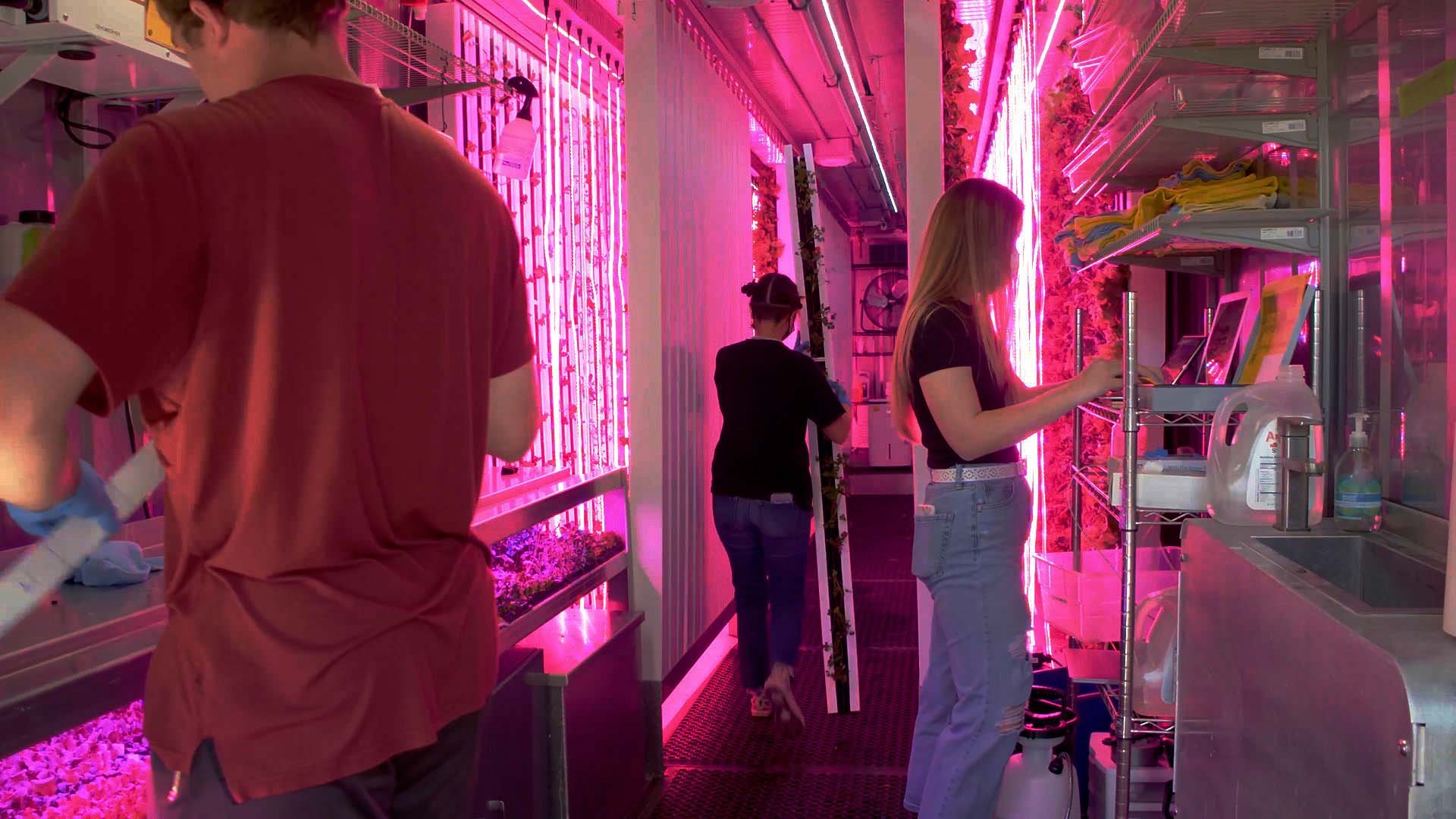
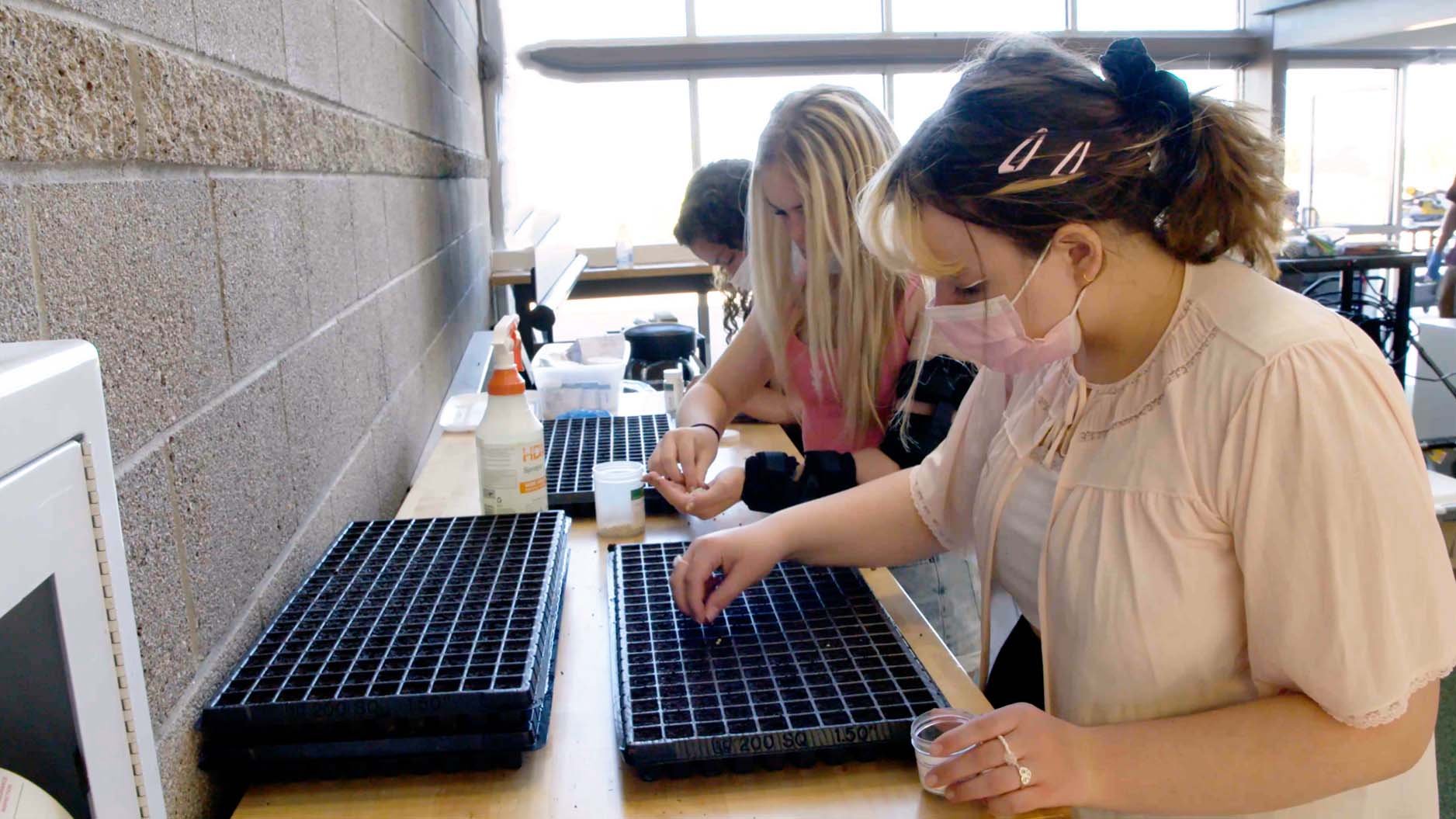

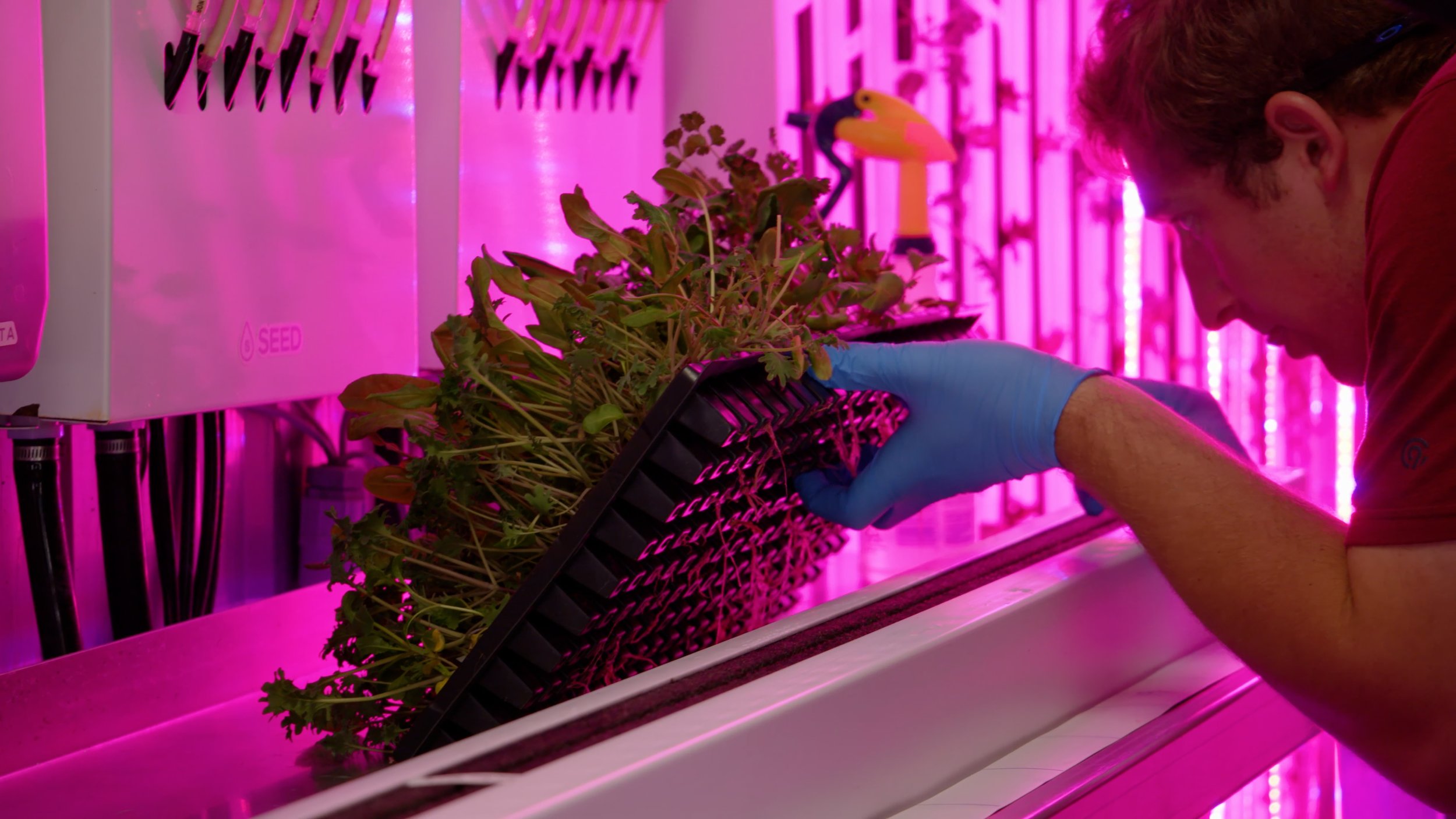





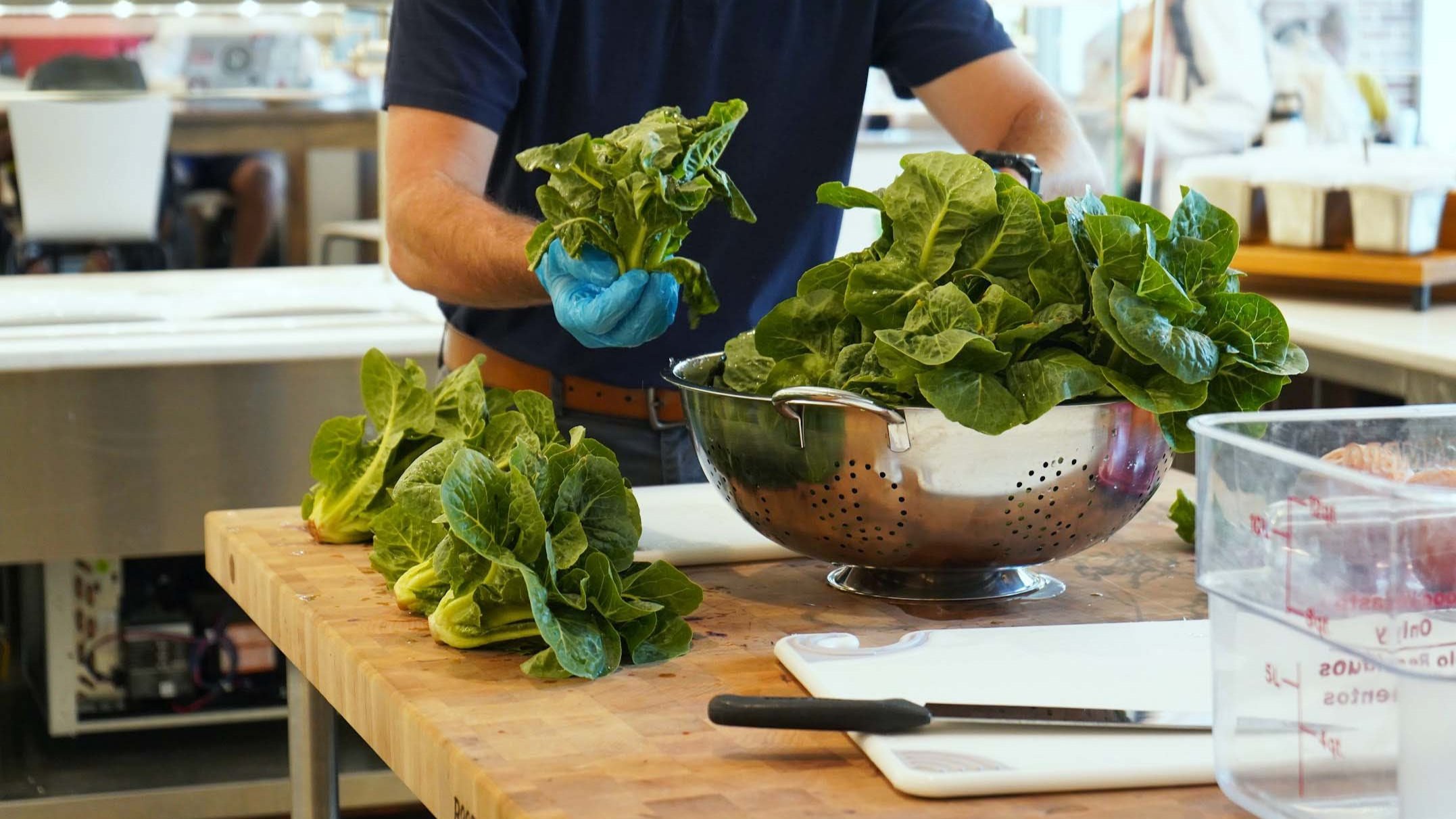
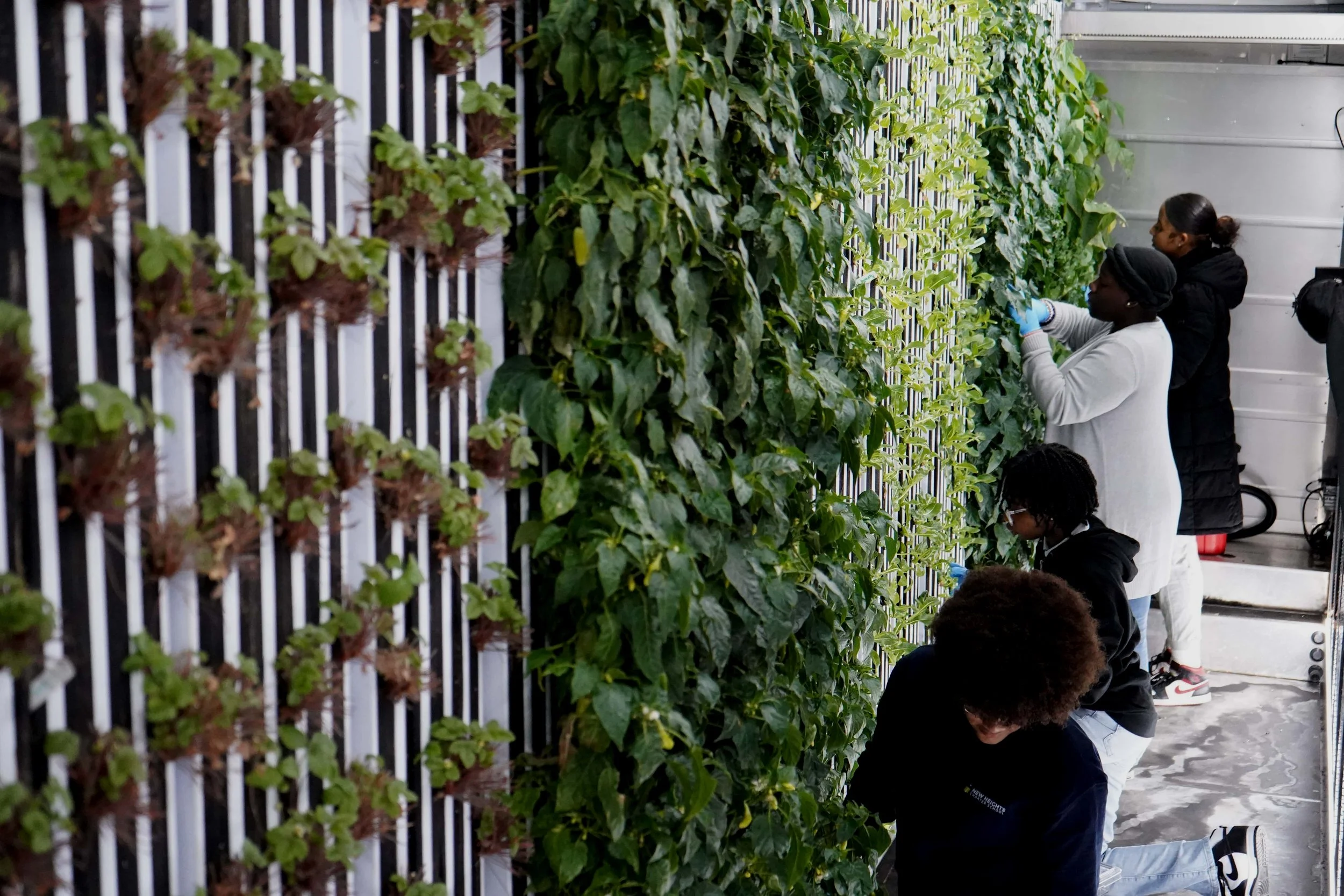









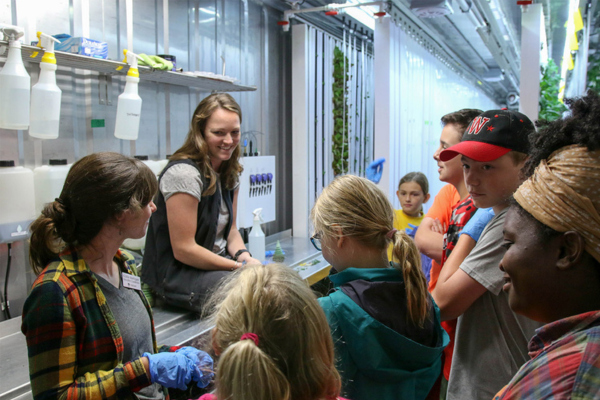



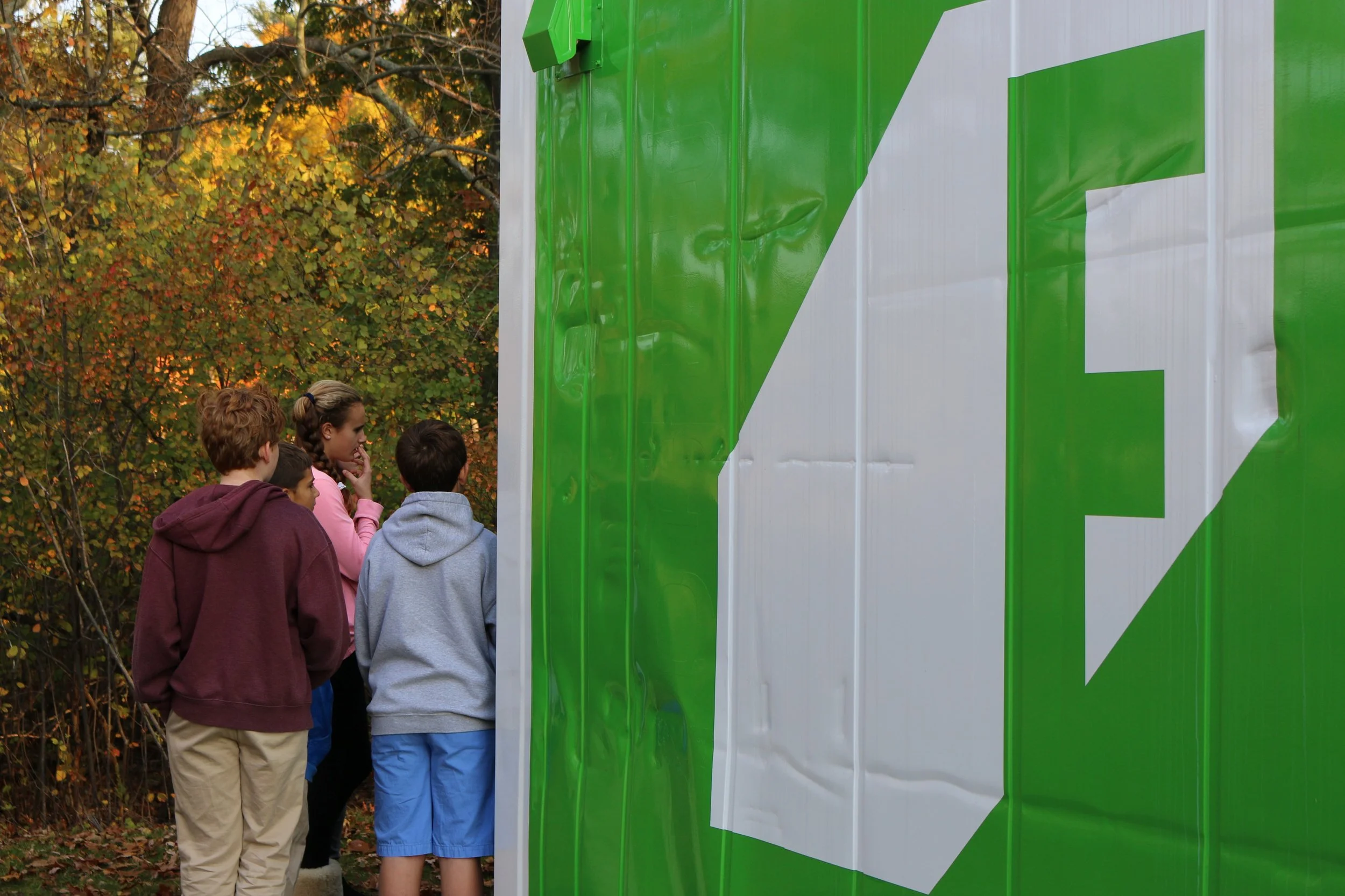



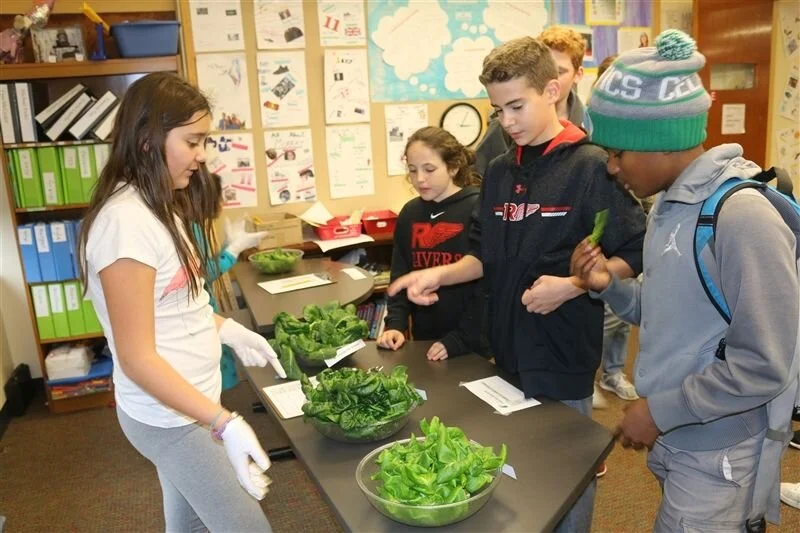
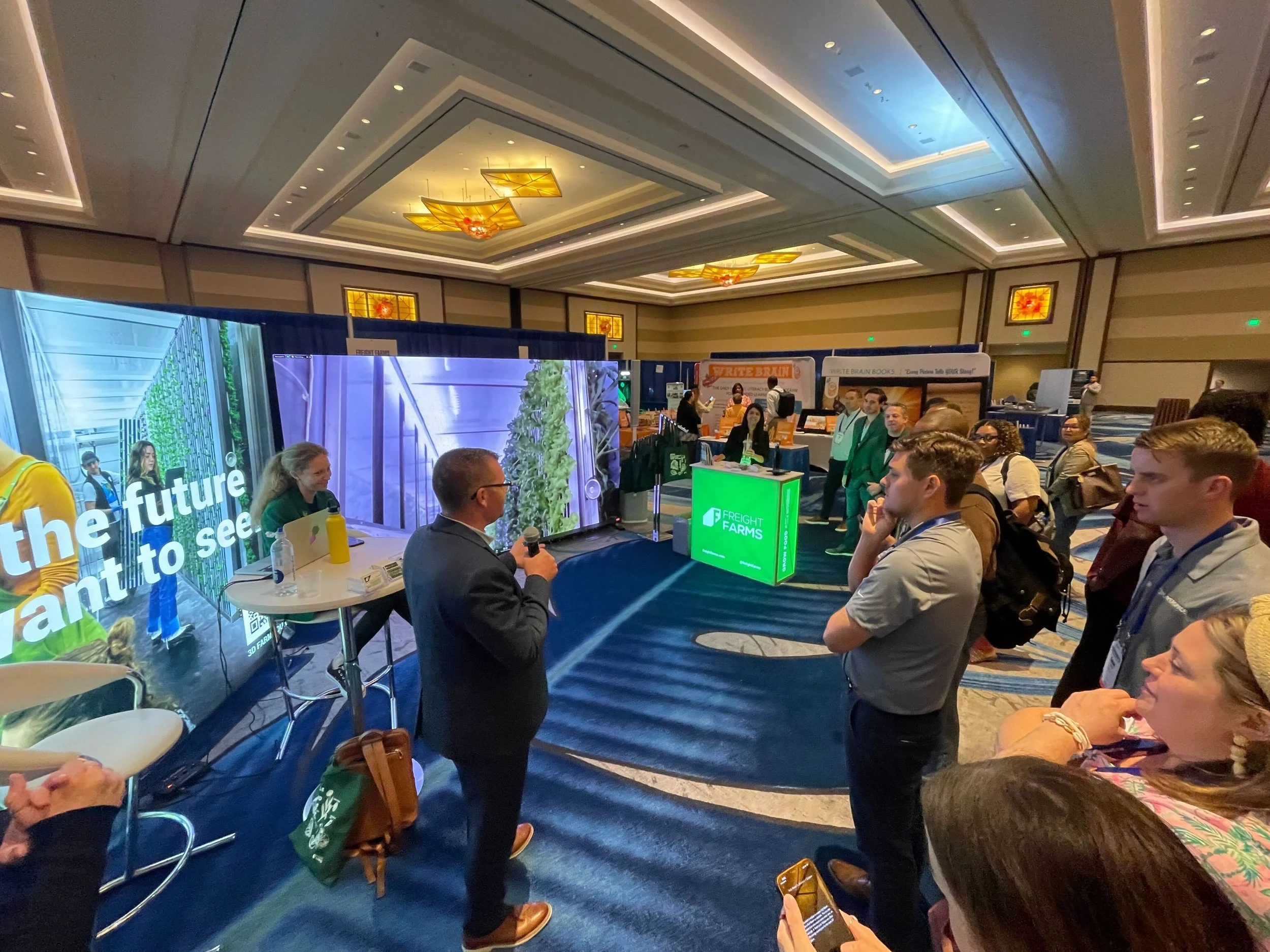
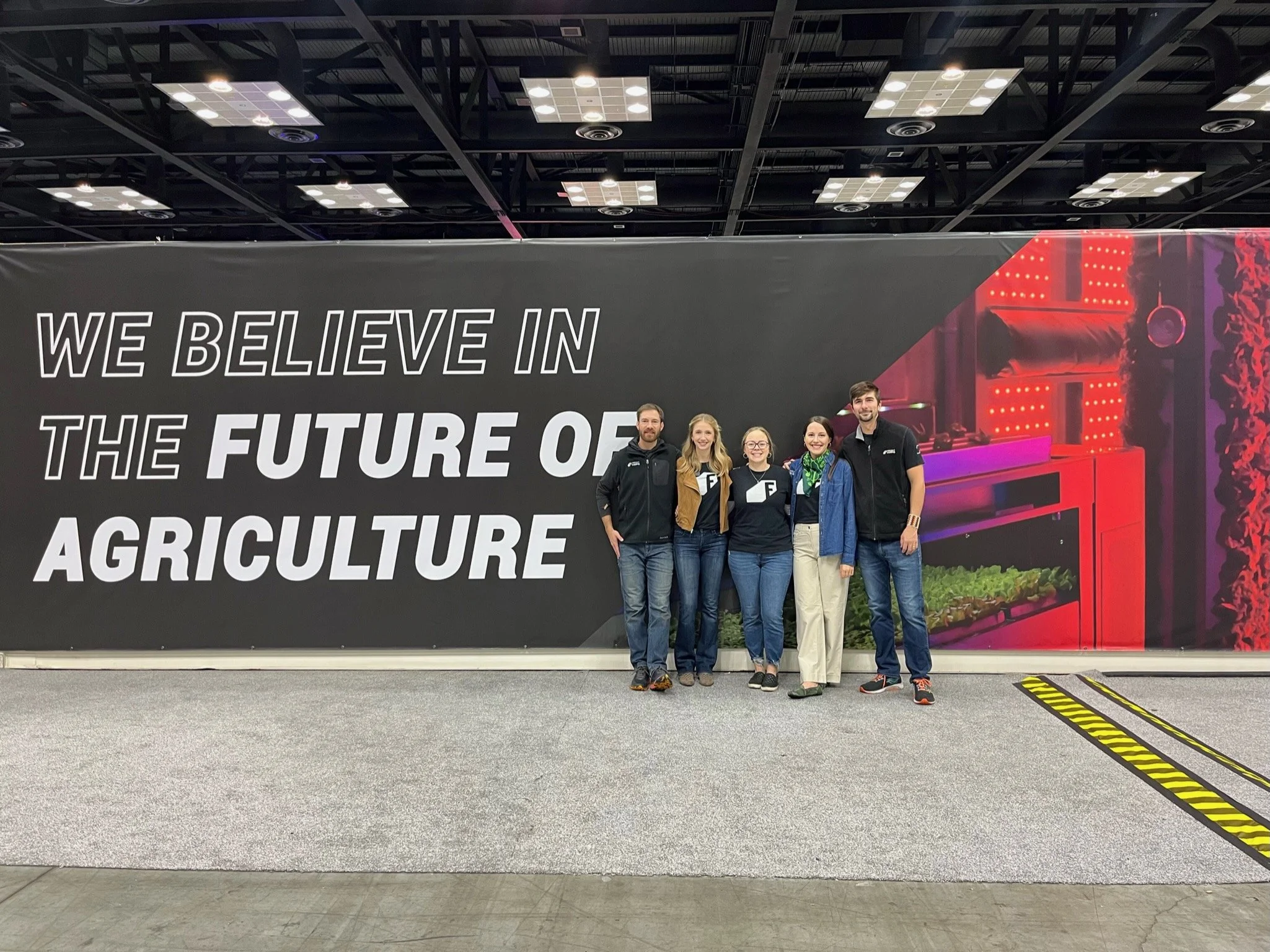








Hydroponic container farms are transforming classrooms into dynamic environments for social emotional learning (SEL). Learn how these innovative tools cultivate essential life skills while growing fresh produce.